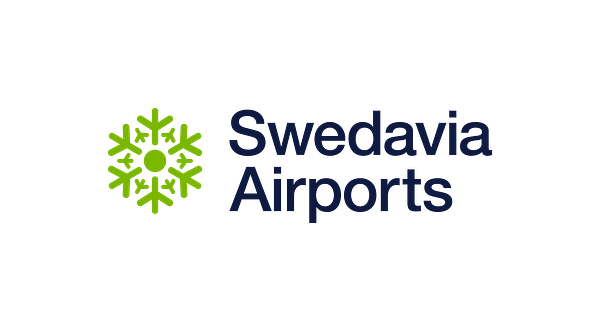Press release -
Swedavia continues to support aviation’s climate transition: Annual joint tender for sustainable aviation fuel includes total of six partners, with refuelling carried out at Stockholm Arlanda
On Wednesday, November 17, Swedavia’s annual delivery of sustainable aviation fuel is being delivered to Stockholm Arlanda Airport and used there to refuel aircraft. The refuelling is a result of Swedavia’s annual public tender for sustainable aviation fuel, which six different organisations are taking part in this year. Sustainable aviation fuel can reduce greenhouse gas emissions over the fuel lifecycle by up to 85 per cent in comparison to the traditional fuel it replaces.
For the second straight year, Swedavia has invited partners to take part in a joint tender for sustainable aviation fuel (SAF). The aim is to give companies and other organisations the opportunity to decarbonise their air travel for business purposes and at the same time promote large-scale production of sustainable aviation fuel and thus aviation’s aim to get to net zero.
“Contributing to increased demand for large-scale production of sustainable aviation fuel and, in the long term, national production of such fuel as well are important parts of aviation’s aim to get to net zero, which needs to continue with full force as air travel starts up again in Sweden and the rest of the world. We want to show that, even today, it is possible to fly using biofuel and that there are concrete solutions to reduce fuel lifecycle emissions we need to make even now. Stop flying or introduce a flight ban will not solve the climate challenge. On the contrary, we all need to contribute to the climate transition. The future travelling obviously has to be sustainable, but also needs to include flying,” says Jonas Abrahamsson, Swedavia’s president and CEO.
Alongside Swedavia, participants in this year’s joint tender for sustainable aviation fuel include the county administrative boards of Gotland, Västernorrland and Halland,the Port of Gothenburg, the national emergency assistance services company SOS Alarm and the Swedish coalition for decarbonisation the 2030 Secretariat. Since 2016, Swedavia has purchased sustainable aviation fuel each year via public tender to reduce fuel lifecycle emissions produced by Swedavia’s own air travel for business purposes.
“Naturally, we are really pleased that many partners have chosen to take part in this year’s public tender for sustainable aviation fuel and thus help make possible more decarbonised flights for business purposes. Of course, our hope is that even more organisations and companies will want to take part in next year’s joint tender to purchase sustainable aviation fuel,” notes Jonas Abrahamsson.
The sustainable aviation fuel is being delivered and used to refuel aircraft at Stockholm Arlanda Airport on Wednesday, November 17.
This year, 45 tonnes of sustainable aviation fuel will be used in refuelling, which reduces greenhouse gas emissions by about 140 tonnes, equivalent to the amount produced by about 750 passenger round-trip flights between Stockholm and Berlin. Due to the pandemic with a great loss in passengers the volume of sustainable aviation fuel is lower.
The sustainable aviation fuel supplied in the tender, is made from residual waste such as used cooking oil and tallow waste. The fuel is produced by Neste in Finland and is delivered by Air bp. Under current fuel requirements, the sustainable aviation fuel is mixed up to 50 percent together with traditional fuel and is used with existing aircraft technology and infrastructure at the airport. Sustainable aviation fuel reduces greenhouse gas emissions by up to 85 per cent over the fuel lifecycle, compared to the traditional aviation fuel it replaces.
Fact about the tender
- The public tender process was launched by Swedavia in the spring of 2021 and resulted in an agreement for 2021-2022. The November 17 delivery is one of a number of possible delivery purchases.
- In winter 2021-2022, Swedavia will invite others to take part in a new public tender for a 2023 agreement.
- The sustainable aviation fuel is purchased as a service and used for refuelling at one of Swedavia’s ten airports. It actually reduces carbon dioxide emissions at the source; in other words, it is not a carbon offset.
- In accordance with the fuel requirements in effect, the sustainable aviation fuel is mixed up to 50 percent together with traditional fuel and used in existing aircraft technology and infrastructure at airports.
- The aviation industry's goal is to make all Swedish domestic flights fossil-free by 2030. Sustainable aviation fuel and electric flights will be important measures to achieve the goal. By 2045, all flights starting at Swedish airports will be fossil-free.
For further information, please contact Swedavia’s press office at tel. +46 (0)010-109 01 00 or press@swedavia.se.
Topics
- Environment, Energy
Categories
- stockholm arlanda airport
- sweden
- swedavia
- stockholm
- travel
The Swedavia Group owns, operates and develops ten airports across Sweden. Our role is to create the access Sweden needs to facilitate travel, business and meetings. Safe, satisfied passengers are the foundation of Swedavia’s business. Swedavia is a world leader in developing airports with the least possible environmental impact. The Group had revenue of about 2.5 billion kronor in 2020 and has nearly 2,300 employees.
